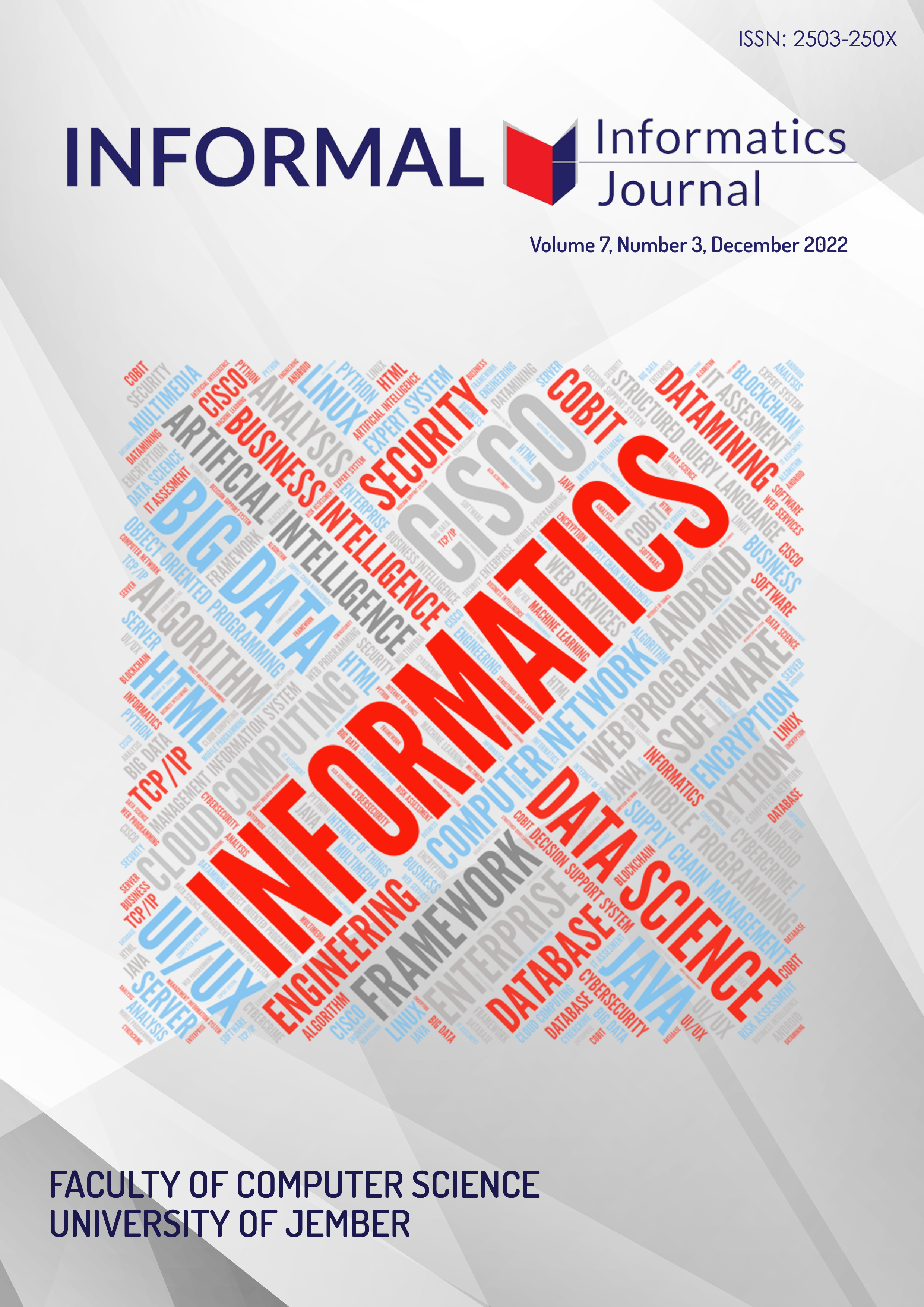Analisis Sentimen Opini Publik Terhadap Program Vaksinasi Covid-19 Di Indonesia Pada Twitter Menggunakan Metode Naive Bayes Classifier
DOI:
https://doi.org/10.19184/isj.v7i3.34930Abstract
The COVID-19 virus emerged in December 2019 in China and actively spread throughout the world including Indonesia in early 2020. Its spread is very fast and has caused millions of deaths. Therefore, the Indonesian government is actively holding a COVID-19 vaccination program to prevent the spread of the virus and make the public immune to the virus. But the program invites pros and cons among the community. Twitter is one of the social media that is famous for being a medium of opinion from the general public. The process of sentiment analysis can find and solve problems based on public opinion on social media such as Instagram. The classification method used in this research is Naïve Bayes Classifier. The dataset can be obtained from data crawling process using Google Collabs and python programming language. The total dataset obtained is 2000. The data the labelled as positive, neutral, or negative. The labelling process result showed 1579 positive data, 277 negative data, and 144 neutral data. Then pre-processing is carried out on the data that has been labeled before, also word weighting process using TF-IDF. After that modelling is carried out using Naïve Bayes Classifier and the last process is evaluation-testing. The high accuracy of the result from fourth experiment which compare 90% data training with 10% data testing produce 86% accuracy. While the result of sentiment test show that positive sentiment more than negative sentiment and neutral sentiment.
Downloads
Download data is not yet available.
Downloads
Published
2022-12-22
Issue
Section
Information Technology



